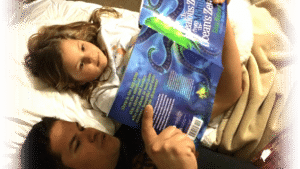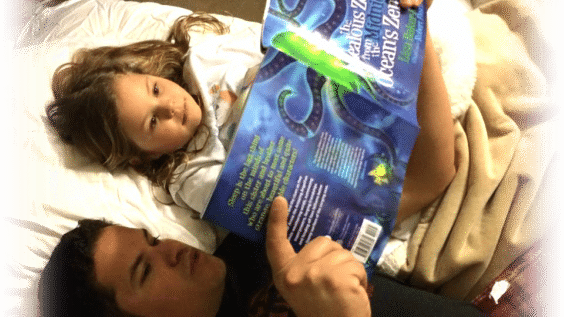By Guest Author Lisa Baker-King
“I’m bored mom!” When I was little, I never wanted to say the word bored because mom would figure out something for me to do and it didn’t involve the toy box or the board games in the family room. I said it anyway and for a while, in elementary school, I was bored at school. Turns out, I needed to be challenged in a different way. Pictures and mind-maps turned out to be my saving grace.
Kiddos sometimes say they are bored at school. But let’s face it; school is not going to always be engaging. Like life, there are things in schools that they simply have to do. Period.
But how do we tell if they are REALLY bored? The kind of bored that makes them turn away from education. The kind of bored that makes them not care about their grades. The kind of bored that tells you, as the parent, that school is just not fun anymore.
Watch how they approach homework. One of the single best ways to recognize if your child is bored at school is by how they approach their homework. This is not to say we expect them to come bouncing in the door after school, forgoing a snack and play time, joyfully opening up their backpack and their homework folder. If that’s your kid, that’s pretty darn amazing and I have one question for you… can I borrow him or her for a few days? Whatever it is that they have, I need it to rub off on some kiddos I know.
 We can tell a lot from their homework engagement level and there are simple ways we can teach our children to love to learn. Here are three signs your tell that your child might be bored at school by watching how they approach their homework:
We can tell a lot from their homework engagement level and there are simple ways we can teach our children to love to learn. Here are three signs your tell that your child might be bored at school by watching how they approach their homework:
- They rush through it
- They show visible and often times vocal frustration
- They don’t seem to care
Now go watch them play: If that’s your child, go watch them play. Seriously. By watching them play, we can visibly recognize their unique learning style and structure homework, and learning, in a way that they will begin to love to learn. Most children (adults as well) fall into one of four learning styles or a combination of two. One way I use to demonstrate this is by a quick example of four children playing in a sandbox.
Sally is in the middle of the sandbox, up to her elbows in sand. She is our Implementor or ‘demonstrator’ child. Sally has to be hands-on. She is the child deconstructing the new toaster you just bought. She needs to learn in a three-dimensional way. If doing math homework, use marshmallows and pretzel sticks to make shapes and geometry come alive. Homework and schoolwork needs to be more than numbers or words on a page for her.
Johnny is holding court, gesturing to all his friends. He has a big idea for the best sand castle ever made and he can’t wait to tell everyone all about it. Johnny is our Quick Start or ‘idea’ child. This child is a visionary and likes to do things his own way. To help this child love to learn, let them put their spin on learning assignments. For example, let them dress up or act out a book report. Homework and schoolwork needs to allow him to be creative and expressive.
Looking closely at Megan, we notice that she has the sand castle building tools organized around her as she sits in the sandbox. Left to right, everything is organized in a pattern. Megan is a Follow Through or ‘process’ child. This is a child who needs to know the plan. She solves problems by organizing and being systematic. For Megan, let her make an agenda of homework to be completed and check it off as it is completed. Homework and schoolwork needs allow her to know the steps and the expectations before beginning the assignment.
Billy is sitting on the edge of the sandbox asking a million questions. He is our Fact Finder or ‘why’ child. This thinking child solves problems by gathering information. He doesn’t like to begin a learning assignment until he has all the information he needs. For this child, turn learning into a fact-finding mission. Instead of giving him the answer, ask what the question is to the answer. Homework and schoolwork needs to allow him to explore the answers and provide him with the details he craves.
Schoolwork, just like homework, can be structured to meet a child’s unique learning style. The good news is, it does not take a lot of adjustment. Meet with your child’s teacher and have a discussion about what you have observed through their play and homework. Together, small changes can be made in the classroom to make learning more engaging for your child.
If you have a child that is struggling with homework, send me an email at zebecs.com.
Order Zebecs NOW, in time for Christmas!
Lisa Baker-King
Author, Consultant & Business Expert
Connecting Families – Celebrating Children – Changing Companies
 Lisa Baker-King is a nationally recognized and televised author, consultant and coach who is creating a movement to break the rules and celebrate what is RIGHT about us. She is passionate about helping families; organizations and small business owners find and pursue their passions with purpose. With over 20 years coaching small business owners, families, educators and children; Lisa is a certified coach, specializing in KolbeTM. Kolbe is the science of human actions, reactions and interactions. It’s the instincts that drive individual and group behaviors, personally and professionally.
Lisa Baker-King is a nationally recognized and televised author, consultant and coach who is creating a movement to break the rules and celebrate what is RIGHT about us. She is passionate about helping families; organizations and small business owners find and pursue their passions with purpose. With over 20 years coaching small business owners, families, educators and children; Lisa is a certified coach, specializing in KolbeTM. Kolbe is the science of human actions, reactions and interactions. It’s the instincts that drive individual and group behaviors, personally and professionally.

